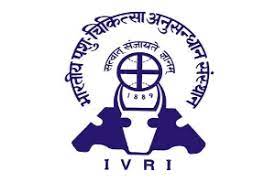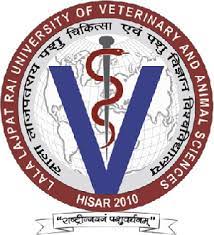Veterinary Immunology is an exciting area of research, and the doctoral program emphasizes advanced training in clinical sciences. Graduate students will develop skills in teaching and clinical trials administration, as well as in basic immunogenetics. Faculty research interests range from basic concepts to applied studies of surgical problems. Collaborative research with other departments and extramural agencies is encouraged. Opportunities to teach are also available. Approximately two-thirds of graduate students are employed in a related field.
The graduate program focuses on the pathogenesis of microbial infections. Students work to understand the molecular mechanism of apoptosis in host cells. Upon graduation, graduates may become members of the American College of Veterinary Microbiologists and assume positions in academia, industry, and governmental research organizations. The Ph.D. program is a great choice for working in the fields of infectious diseases and molecular biology.
While a degree in veterinary immunology will prepare you to work in a variety of areas, the most common focus is on mucosal immune disease. Students with expertise in other areas of veterinary medicine may also choose to focus on a broader area. In this way, they will gain the skills necessary to lead a research team. A reputable Ph.D. in Veterinary Immunology program will also help you lead an international research team, overseeing a diverse group of scientists.
Ph.D. in Veterinary Immunology Eligibility
Candidates who want to take admission in Ph.D. must have a post-graduate degree in Veterinary Immunology and its relevant discipline with at least 55% marks from a recognized university and must have passed the national level entrance examination or university level entrance examination. National level entrance exams like UGC NET / UGC CSIR NET / GATE / SLET or University entrance exams consist of written tests and personal interviews.
The Benefits of a Ph.D. in Veterinary Immunology
The Ph.D. in Veterinary Immunology program at the University of California, Davis provides students with a comprehensive education in animal immunity, disease, and virology. The integrated efforts of several departments, including the Paul G. Allen School for Global Animal Health, the USDA-ARS Animal Disease Research Unit, and the Veterinary Medicine Department, create a highly productive academic research environment. Faculty who specialize in infectious diseases conduct research for the Ph.D. dissertation. Applicants benefit from a flexible curriculum that focuses on their career goals and includes core formal coursework and specialized courses in a literature review format.
Veterinary Immunology is a field of study that encompasses all aspects of animal immunity, from the function of immune cells to their dysfunctions and disorders. A Ph.D. in Veterinary Pathobiology will focus on the study of how the immune system works and how vaccines can improve animal health. Various institutions offer this program to train future scientists and veterinarians. For example, Dr. Bird's research program at the University of California, Davis's Center for Vaccines, and the Center for Molecular and Cell Biology, and she's also a renowned immunologist.
The Ph.D. in Veterinary Immunology program combines post-D.V.M. training in diagnostic and therapeutic microbiology with original research on infectious diseases. Trainees are exposed to a range of infectious disease research programs through interactions with faculty mentors and case discussions with undergraduate microbiology students. Advanced diagnostic and treatment technology is a focal point in this program, with close communication with veterinary technicians and faculty microbiologists. Moreover, the training focuses on understanding host-pathogen interaction and the development of vaccines.
The Career Opportunities of Ph.D. in Veterinary Immunology
Applicants should have a background in immunology or microbiology as well as extensive research experience in animal models of infectious diseases. They must also have excellent communication and critical thinking skills. Preferably, candidates should have prior research experience, particularly in antimicrobial research or evaluating bacterial vaccines. After receiving their Ph.D., graduates are qualified for a variety of positions in academia and industry.
The doctorate program in immunology and infectious diseases provides a comprehensive education in the science and practice of animal immunity and host-pathogen interactions. It also features the integration of several departments, including the Paul G. Allen School of Global Animal Health and the USDA-ARS Animal Disease Research Unit. Students are supervised by internationally recognized faculty who focus on the area of their dissertation research. Each student's program is customized to match their interests and career goals. The course schedule is composed of formal coursework and specialized courses in a literature review format.
There are no online Ph.D. programs in immunology, but there are many brick-and-mortar programs. In the United States, the most popular programs are located at the University of Iowa in Iowa City. Other popular brick-and-mortar institutions include the Medical College of Wisconsin in Milwaukie and the University of Wisconsin in Des Moines. The most prestigious schools for this degree are Harvard University, Yale University, Stanford University, and the University of Pennsylvania in Philadelphia. Other institutions in the country are the University of Chicago, Tufts, and the University of Washington in Seattle.
The Future Scope of a Ph.D. in Veterinary Immunology
The future scope of a Ph.D. in Veterinary Immunology is bright. The field is expanding rapidly and researchers are finding new and exciting applications. Many veterinarians are now working on developing vaccines against diseases that affect livestock and people. Dr. Dennis Denny has been a member of the faculty at UTMB since the fall of 2010. He has worked with Dr. Heinz Feldmann and Dr. Rebeca Rico-Hesse.
The future of veterinary immunology is bright because of the rapid progress of research and the development of novel tools and technologies. The advancement of basic and applied immunology has been greatly facilitated by the development of novel tools and techniques. Although the rate of advancement of these reagents in veterinary species has lagged behind human species, it has helped advance the field. Recent breakthroughs in surgical procedures and animal models have led to major step-changes in our knowledge of the immune system.
Veterinary immunology graduates have many employment options. A Ph.D. in veterinary immunology can lead to a variety of positions within the industry. Depending on the specialty of your chosen field, you may work as an immunologist, technical assistant, research scientist, lecturer, or business development executive. Salary can vary from INR 4,00 to INR 8,00,000. If you are a veterinarian looking for a new career in a related field, you might want to pursue a postdoctoral position or become an independent researcher.
Ph.D. Research Programme duration
The Ph.D. in Veterinary Immunology course is a minimum of 3 years and a maximum of 5 min duration. This depends on the university offering the course.
Fees for research program for Veterinary Immunology
The average fee for Ph.D. in Veterinary Immunology degree is between INR 50000 and INR 500000.
 5 Years
5 Years
 PhD
PhD
 Research
Research















 back
back